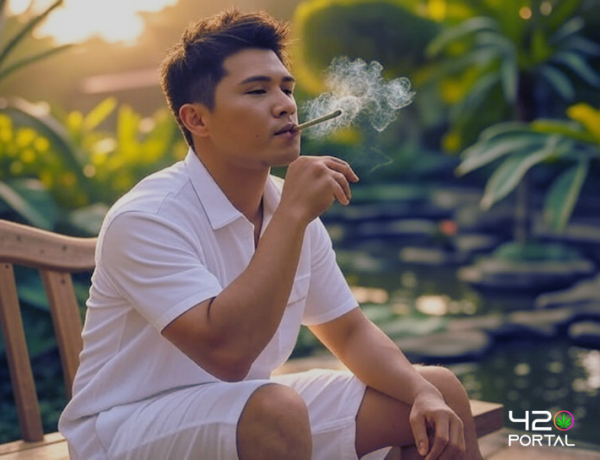Thailand’s Marijuana Legalization: A Bold Experiment Faces Growing Pains

07/04/2025
Thailand became the first Asian nation to legalize marijuana, aiming to boost its economy through medical tourism and agricultural innovation. The move was heralded as progressive, with hopes of destigmatizing cannabis and creating a regulated market for both medicinal and recreational use. Lawmakers envisioned a thriving industry, with cannabis cafes and wellness centers attracting global visitors, while farmers could cultivate high-value crops. However, the rollout has been rocky, revealing challenges in regulation, public perception, and enforcement.
Initially, the decriminalization led to a boom in cannabis-related businesses. Dispensaries and cafes sprouted across cities, offering everything from infused drinks to CBD skincare. Entrepreneurs saw potential in exporting cannabis products, and rural farmers pivoted to hemp cultivation. Yet, the lack of clear regulations created a gray market. Unlicensed vendors proliferated, selling products with inconsistent potency and quality. This raised concerns about consumer safety, as some users reported adverse effects from untested goods. The absence of strict oversight also led to an oversupply, driving prices down and squeezing small-scale growers.
Public sentiment has been mixed. While younger urbanites embraced the newfound freedom, conservative groups worried about increased youth access and potential addiction. Reports of public cannabis use in inappropriate settings, like schools or temples, fueled debates over social norms. Law enforcement struggled to differentiate legal from illegal activities, with arrests for minor possession causing confusion. Critics argue the government rushed legalization without adequate infrastructure, leaving police and health officials unprepared.
Health experts have also raised alarms. Without standardized dosing guidelines, recreational users face risks of overconsumption, while medical patients struggle to access reliable products. Emergency rooms have seen a slight uptick in cannabis-related cases, though data remains inconclusive. Meanwhile, neighboring countries have watched Thailand’s experiment closely, hesitant to follow suit until clearer outcomes emerge.
Thailand’s cannabis journey underscores the complexities of pioneering drug reform in a culturally conservative region. Balancing economic ambition with public health and social order requires robust policies and education. As the nation refines its approach, it remains a test case for Asia, where attitudes toward marijuana are slowly shifting.
Reference
Initially, the decriminalization led to a boom in cannabis-related businesses. Dispensaries and cafes sprouted across cities, offering everything from infused drinks to CBD skincare. Entrepreneurs saw potential in exporting cannabis products, and rural farmers pivoted to hemp cultivation. Yet, the lack of clear regulations created a gray market. Unlicensed vendors proliferated, selling products with inconsistent potency and quality. This raised concerns about consumer safety, as some users reported adverse effects from untested goods. The absence of strict oversight also led to an oversupply, driving prices down and squeezing small-scale growers.
Public sentiment has been mixed. While younger urbanites embraced the newfound freedom, conservative groups worried about increased youth access and potential addiction. Reports of public cannabis use in inappropriate settings, like schools or temples, fueled debates over social norms. Law enforcement struggled to differentiate legal from illegal activities, with arrests for minor possession causing confusion. Critics argue the government rushed legalization without adequate infrastructure, leaving police and health officials unprepared.
Health experts have also raised alarms. Without standardized dosing guidelines, recreational users face risks of overconsumption, while medical patients struggle to access reliable products. Emergency rooms have seen a slight uptick in cannabis-related cases, though data remains inconclusive. Meanwhile, neighboring countries have watched Thailand’s experiment closely, hesitant to follow suit until clearer outcomes emerge.
Thailand’s cannabis journey underscores the complexities of pioneering drug reform in a culturally conservative region. Balancing economic ambition with public health and social order requires robust policies and education. As the nation refines its approach, it remains a test case for Asia, where attitudes toward marijuana are slowly shifting.
Reference







